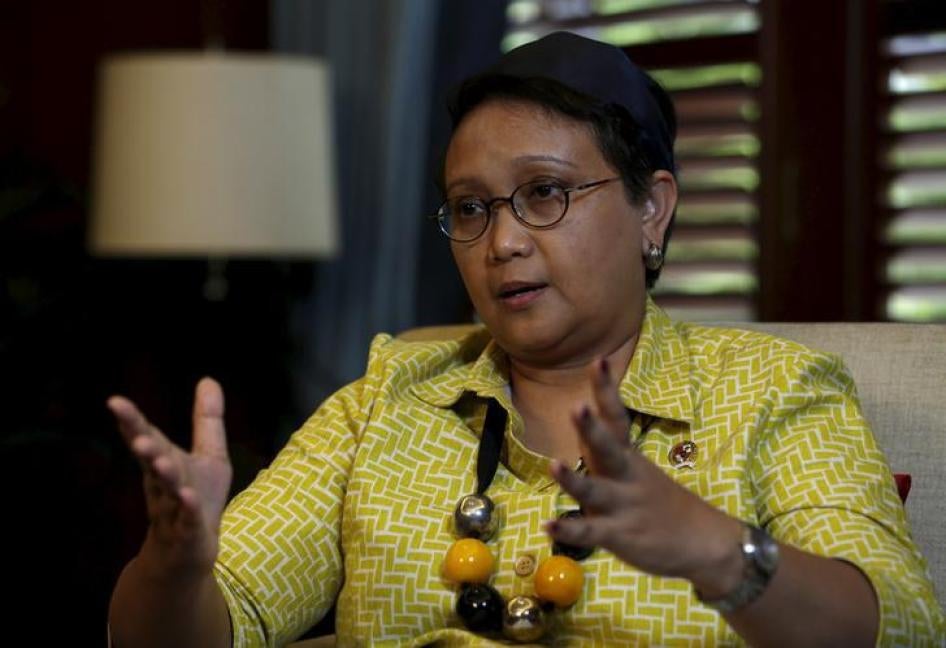International human rights law is absolutely clear: Countries should not use the death penalty for drug-related offenses. Yet, Indonesia’s Minister of Foreign Affairs, Retno Marsudi, recently confirmed that her country would continue to put drug traffickers to death due to the country’s “drug emergency.”
Last year, Indonesia prompted a major international outcry when it executed 14 drug traffickers. Six convicted drug traffickers were put to death in January 2015, including five foreigners. On April 29, over the objections of numerous foreign governments, Indonesia executed eight convicted drug smugglers – including seven foreign nationals, from Australia, Ghana, Nigeria, and Brazil – by firing squad. Non-Indonesians make up the majority of the country’s 64 death row prisoners convicted of drug crimes.
Jakarta defends the death penalty as “shock therapy” against drug trafficking. “We must finish drug dealers or we're losing a generation,” a government spokesperson said in late 2014.
Yet, the death penalty’s deterrence effect has been repeatedly debunked. Most recently the United Nations assistant secretary-general for human rights, Ivan Šimonovi, said, there was “no evidence that the death penalty deters any crime.” A University of Oxford analysis concluded that capital punishment does not deter “murder to a marginally greater extent than does the threat and application of the supposedly lesser punishment of life imprisonment.” That renders continued use of the death penalty merely cruel and irrevocable.
The death penalty has become a contentious issue in the negotiations in preparation for the April 2016 UN General Assembly session on drugs. While the European Union and Latin American countries have spoken out strongly against capital punishment for drug offenses, countries like Indonesia, Iran, and China have blocked any attempts to include language about ending the use of the death penalty for drug offenses in the outcome document.
Indonesia’s current execution spree is no judicial accident. Since taking office in November 2014, President Joko Widodo has made the death penalty for convicted drug traffickers a signature policy issue.
It is overdue for Widodo to recognize the well-documented failure of the death penalty as a crime deterrent and join the growing number of countries that have abolished capital punishment.








